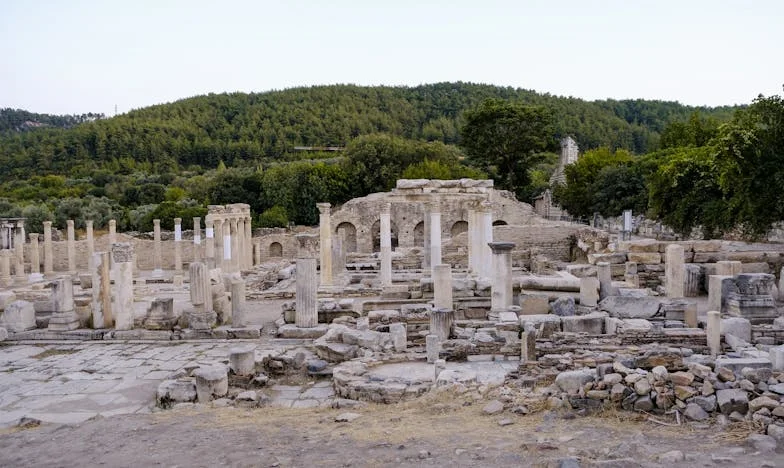Until His Last Breath: Love, Loss, and Being Cast Aside
“You have to leave now. Dad’s gone. This isn’t your home anymore.”
Those words, flat and cold, crashed against my ears as I clutched Michael’s hand, still warm from life moments ago. His oldest daughter, Jennifer, stood in the doorway to the bedroom, arms folded tight.
I wanted to scream at her, to grab her shoulders and shake some sense of decency into her. But all I could manage was a whisper. “I loved him too.”
She didn’t blink. “You’re not family.”
How do you sum up eleven years in a sentence? How do you explain to anyone what it means to find love when you’ve given up believing in it?
I was 56 when I met Michael at the local church’s secondhand book sale in Lansing, Michigan. I’d just signed my divorce papers, and my heart was battered, barely stitched together. Michael was a widower, gentle, with sad eyes and a voice that sounded like old music. We weren’t looking for fireworks—just a little warmth to get us through the Michigan winters.
I remember the first time he made me laugh. He was holding a battered copy of To Kill a Mockingbird and said, “If Scout Finch were real, she’d run this whole town.” I snorted, and he grinned, and a little room opened up inside me where hope could breathe again.
He was cautious about introducing me to his kids. “They’re still grieving their mom,” he said often. “Give them time.” I tried. Jennifer, Eric, and Molly—grown adults with their own lives—never seemed to have space for me. Holidays were awkward, birthdays even more so. At Thanksgiving, I sat at the end of the table, Michael’s hand squeezing mine under the cloth while his children’s conversations spun around me like I was invisible.
But in the quiet moments, Michael saw me. We built a life: coffee every morning, puzzles on rainy afternoons, slow walks hand-in-hand through our neighborhood. We went to the farmer’s market every Saturday, bought tomatoes and sunflowers, and argued about which movie to watch on Fridays. We were each other’s second chance.
When the cancer came, it was swift and cruel. The doctors gave him six months, but he barely made it to four. I became his nurse, his cook, his everything. I bathed him, fed him, changed his sheets in the middle of the night when the pain was too much. His children visited, but only for short bursts, always looking at their watches, always too busy. I resented them for that, but Michael never said a bad word about them. “They’re trying, in their own way,” he’d say. I tried to believe him.
The night before he died, he squeezed my hand and whispered, “Thank you, Linda. I couldn’t have done this without you.” His eyes were wet. Mine too. I told him I loved him, and he smiled, the lines on his face deepening. “I love you too.”
After he passed, Jennifer and Eric came barreling into the house, all business. Molly hung back, crying in the kitchen. They gathered his things—his wedding ring, his watch, the battered book he’d bought the day we met—as if they were collecting evidence. I watched, numb, as they sorted through his life like it was a garage sale. Then Jennifer turned to me with that flat voice and told me to leave.
I begged. “Please, at least let me stay one more night. I have nowhere to go. Michael wanted me here.”
She shook her head. “Dad’s will leaves everything to us. You’re not on the deed. You always knew this was our family home. You can stay at a hotel.”
I left in the pouring rain, a suitcase in my hand, feeling every one of my 67 years. I sat in my car in the parking lot of a cheap motel, staring at my reflection in the rearview mirror. Was I ever really part of Michael’s family? Or was I just a placeholder, a warm body to fill the empty space after his wife died?
The weeks that followed blurred into gray. I called Molly once; she cried and said she was sorry, but that it was out of her hands. Jennifer blocked my number. Eric never answered. I packed up my own life, moved into a small apartment, and tried to find routine again. But there is a silence now that sits heavily on my chest, a reminder that love, for all its warmth and promise, sometimes isn’t enough to break through the walls people build to protect their own.
I still reach for Michael in the dark, some nights. I still play our favorite songs and talk to him as if he might answer. The world keeps spinning, people keep moving forward. But me? I’m stuck, wondering if loving someone fiercely, caring for them until the very end, really makes you family—if nobody else is willing to see it.
Does love mean less if, in the end, you’re left out in the cold? Or is it enough that I was there—really there—when it mattered most?
